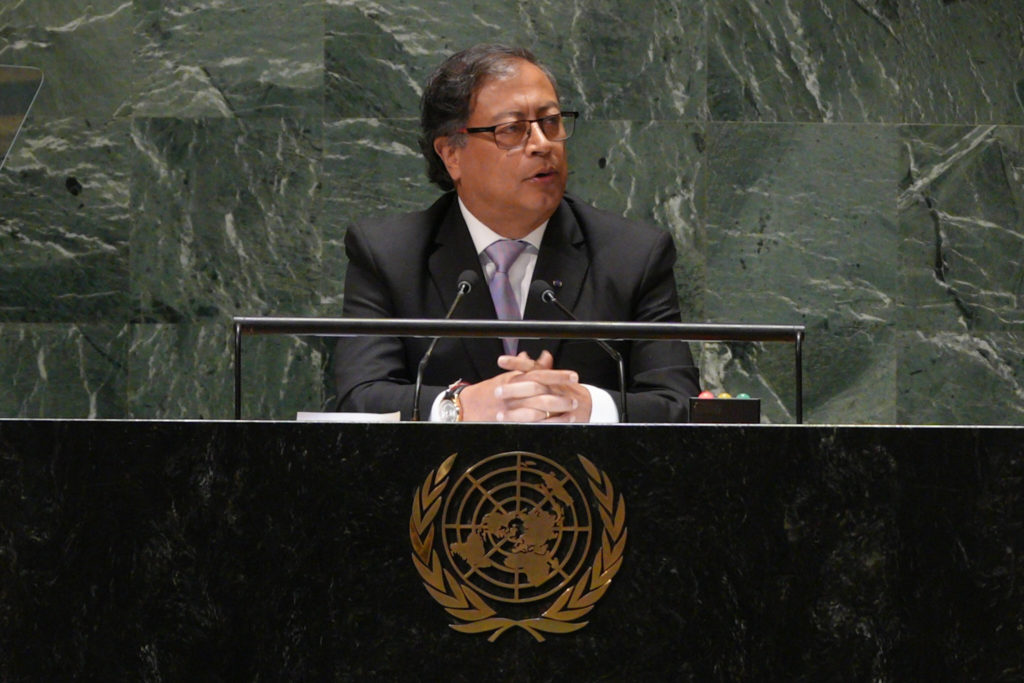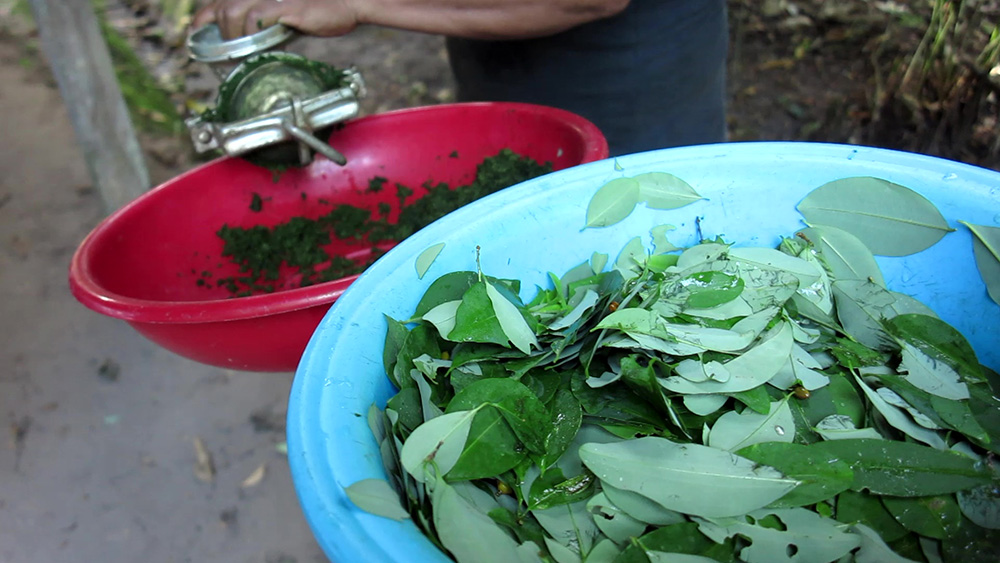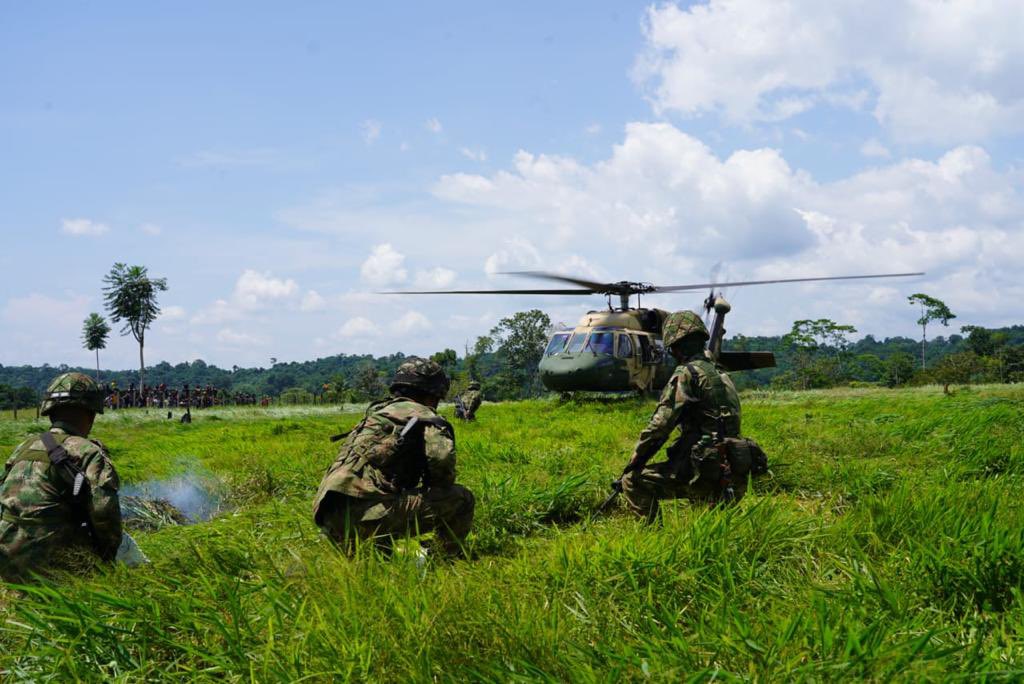
Colombian President Gustavo Petro has openly criticized the existing approach to anti-drug efforts during a statement to the United Nations. Addressing the UN Commission on Narcotic Drugs in Vienna, Petro shared his persistent doubts about the effectiveness of current strategies to counter drug trafficking.
In a compelling address, President Petro critiqued the war on drugs, declaring it “has failed.” He noted that if the global community does not back his new approach to combating drug trafficking, Colombia will proceed independently to achieve better results.
The consequences of failure
Petro backed his argument by referring to the latest World Drug Report from the United Nations Office on Drugs and Crime. He pointed out that despite efforts, illegal drugs remain widely accessible, whereas essential medicines fail to reach those in need. This, according to Petro, demonstrates the shortcomings of the current approach.
Not mincing his words, Petro denounced the international body as “deaf and blind” in the face of this failure in the fight against drugs. “A former president of the United States said: ‘with the United Nations when possible, without the United Nations when necessary’. We believe that we must do everything with the United Nations, but not with a deaf, blind and silent United Nations,” Petro said in a pre-recorded speech.
He also recalled his country’s historical sacrifice in this policy that has not borne fruit. “Colombia put into practice all the wrong formulas imposed on us from outside for a war against drugs. We…. gave soldiers and police officers an impossible mission”.
In a review of a painful past, Gustavo Petro denounced that in Colombia failure was evident, as in the rest of the world, but with even greater consequences, taking into account the social damage caused. “We wasted money from our budget, we turned our peasant, indigenous and Afro communities into enemies. We massively and systematically violated rights, contributed to the destruction of our ecosystems and sacrificed our development for a war that others wanted,” concluded the president.
Reasons for failure
In the message sent to the United Nations, Petro explained what, according to him, are the reasons for this historic failure. On the one hand, he spoke of the rise of fentanyl, a new drug with harmful repercussions on health and which, he said, has already killed more than 100,000 people a year in the United States.
He also referred to the million people murdered in Latin America, the most violent region in the world due to the criminalization of drugs. He also cited the tens of thousands of prisoners, including coca leaf growers, as well as the destruction of democracy and widespread corruption in producer countries, taken over by criminal gangs financed by drug trafficking. In this regard, the Colombian president urged the Commission on Narcotic Drugs to recognize the close relationship between arms trafficking, money laundering and corruption with the global phenomenon of illicit drugs.
For Gustavo Petro, the current anti-drug policy has only served to widen social gaps. “The drug mafias that are created by prohibition and criminalization move their money to the north for the benefit of the financial system, controlled by big capital, and leave violence and destruction in our global south,” added the Colombian president.
Defending the coca leaf
In his speech, President Petro defended coca leaf cultivation, insisting on something he has already echoed in various forums: the problem is not one of drugs, but of development. “What the world calls the global drug problem reflects, more than anything else, the loneliness of millions of people in developed societies,” he added.
In this context, Colombia presented the National Drug Policy “Sowing life we banish drug trafficking”, with a clear paradigm shift. “Our national drug policy puts the fundamental rights of Colombians at the heart of our action,” said the president, who defended his view that it is a mistake to criminalize the peasant producer. “We will give oxygen to the peasants who grow coca leaf and we will suffocate those who profit from cocaine trafficking,” he added.
This new anti-drug policy will be part of the presidential plan of Total Peace, the Colombian project to make peace with the various illegal armed groups that feed on drug trafficking to enhance their military power.

Drug policy in Colombia 2023-2033
In September last year, the Colombian government presented its new National Drug Policy for the next decade, marking a focus on human rights, public health and environmental protection. Recognizing the transnational nature of the problem, it promotes shared responsibility among nations to address the scourge of drug trafficking.
With the objective of significantly reducing coca cultivation and cocaine production, it sets an ambitious goal of reducing 90,000 hectares of illegal crops by 2026, which would represent a 43% reduction in cocaine production and the elimination of millions of doses from the market.
The policy also seeks to mitigate the environmental impacts associated with the illicit drug economy, as well as to prevent new environmental impacts. It promotes the participation of communities in conservation and restoration processes and seeks to protect the traditional knowledge of ethnic communities associated with plants.
For the implementation of this policy, strategic resources will be allocated from both the State and international cooperation, with a territorial and community approach. Priority will be given to access to detection, treatment and care for problems derived from the consumption of psychoactive substances, as well as the promotion of strategies to reduce risks and associated stigmas.
The new policy also contemplates measures for voluntary and forced eradication of illicit crops, with the aim of affecting the capacities of criminal organizations and protecting vulnerable communities affected by drug trafficking. It is estimated that this policy could generate significant economic and environmental benefits, as well as improve the living conditions of thousands of Colombian families who depend on illegal coca.

See all the latest news from Colombia and the world at ColombiaOne.com. Contact our newsroom to report an update or send your story, photos and videos. Follow Colombia One on Google News, Facebook, Instagram, and subscribe here to our newsletter.

